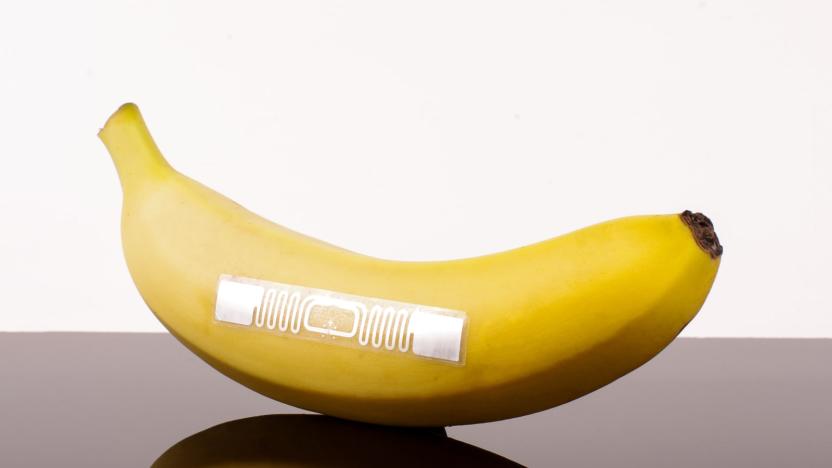foodsafety
Latest

Everyday RFID tags could help spot food contamination
You might not need special sensors or old-fashioned inspections to tell whether food has gone bad. If MIT has its way, the tags you already find on your food might do the job. Its researchers have developed a wireless system, RFIQ, that detects potential food contamination based on minute changes in the signals emanating from the RFID tags you often see on containers. As different materials absorb different amounts of the tags' electromagnetic frequencies, you can use a reader to spot changes in response signals and identify food contamination. If a foodstuff dries out, for instance, you'd notice a different signal than when it was still moist.

3D-printed bottle caps will let you know if your milk goes bad
If you're not a fan on the ol' smell test to see if milk has spoiled, you might soon be in luck. Researchers from the University of California at Berkley and National Chiao Tung University in Taiwan created a "smart cap" for food storage containers that can detect spoilage. Using 3D-printed electronics, the lids house circuits and passive wireless sensors that are capable of determining if milk or juice has spoiled when it comes in contact with the lid. The components can detect changes in the liquid due to the presence of bacteria and transmit details wirelessly in real time. This means that you could potentially use a mobile app to check the freshness of food before you decide to buy it, for example. The group of engineers sees other uses for the technology too, including so-called smart implants that can relay pressure and drug concentrations to an external device. [Image credit: Brendon Thorne/Bloomberg via Getty Images]

IBM Research and Mars tackle food safety with advanced genetics
In an effort to help prevent foodborne illnesses and contamination, IBM Research is teaming up with Mars for a safety study that'll examine how supply chains affect what we eat. Specifically, the duo will take a closer look at microorganisms in a safe factory environment to help cut down on the billions of dollars lost each year to medical costs and discarded food. By studying detailed genetics of bacteria, fungi and viruses, scientists can not only assess their growth, but also determine how to ensure our well-being when they're present. Many companies like Mars -- owner of Snickers, Uncle Ben's and other culinary brands -- already keep close tabs on quality control, but this new partnership aims to get super-specific about cataloging and analysis at an unprecedented scale.

